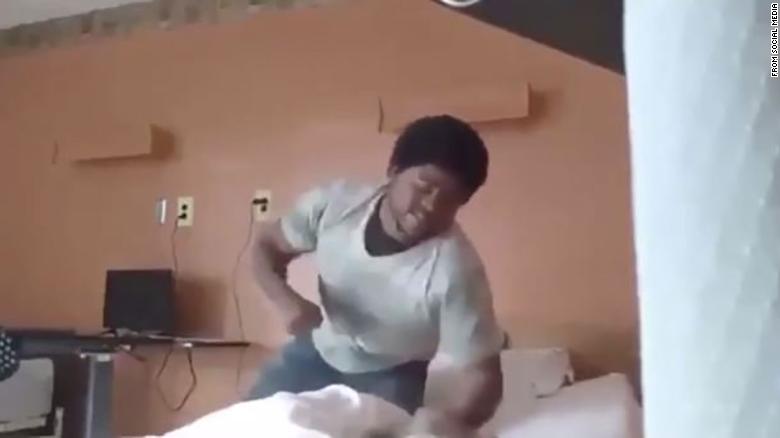Erica Johnson is an award-winning investigative journalist for CBC. She recently wrote an article on a complaint filed against top-level staff at Athabasca Extendicare nursing home which accuses administrators of under-staffing the facility and locking up diapers to limit their use while incontinent residents sat in urine-soaked pads, suffering from severe bladder and yeast infections, painful skin rashes and open wounds from pressure injuries.
The allegation is just one of many in a complaint filed in December 2018 with the College and Association of Registered Nurses of Alberta (CARNA), claiming that senior staff at Athabasca Extendicare did not deliver proper care and hygiene to 50 residents and that the home was constantly understaffed.
All five people involved in the complaints to CARNA also describe under-staffing at Extendicare Athabasca. A former HCA writes that many shifts were short by one or two staffers and that overtime was “very seldom approved.” That meant “basic care would get overlooked, call bells couldn’t be answered in a timely manner and baths were skipped.”
In a separate dispute, Extendicare Athabasca was recently found to have violated both a collective agreement and the province’s Nursing Homes Act for not having a registered nurse on duty at all times. The company was ordered in December to pay $5,000 to the United Nurses of Alberta to account for lost union dues.
“It’s just despicable,” said Don Bryan, whose mother Sheila endured neglect while a resident before she died at age 83. “You don’t treat elderly people that way,” he said. “That’s just so wrong.”
Bryan, along with a resident, two former health-care aides and a nurse who resigned filed three complaints with CARNA, in December 2018.
Their complaints — obtained by Go Public — take issue with the inner workings of the for-profit nursing home, which former staff say came at the expense of quality care.
The longest, most disturbing complaint was filed by a nurse who worked at Athabasca Extendicare from April 2016 to March 2018 and then quit, Natalie Shipanoff. She states the home rationed diapers — limiting most residents to three during the day and one at night. In support of Shipanoff’s complaint, a former HCA writes that the facility ran out of incontinent products “multiple times” and that a diaper change “didn’t happen until the pad was 80% or more wet or soiled with feces.”
“Pads were a constant source of contention,” Shipanoff wrote, saying the director of care often wanted to know why so many were being used.
The director of care told staff, in a September 2017 email seen by Go Public, she was changing the access code to the room storing incontinent pads.
“The new code is not to be shared with HCA’s [health-care aides],” the director of care wrote, because “product removal was being abused.”
From then on, HCAs would have to track down a nurse — who may not be available for hours, wrote Shipanoff — to unlock the stash of diapers.
“What is the HCA supposed to do when the resident is full of feces and they do not have a clean pad to put the resident in?” wrote Shipanoff.
Statistics from the Canadian Institute for Health Information indicate that from 2017 to 2018 the home had a reported urinary tract infection rate of 7.5 per cent, much higher than the national average of 4.3 per cent.
Shipanoff also alleges HCAs were told to only use one diaper wipe when changing a resident, to save money, and that many suffered from painful health problems she attributed to poor hygiene.
She says staff were shown how to fold a 8×10-inch wipe to get 16 different surfaces to clean a resident and describes “fungal infections (yeast infections) of the skin, especially in the groins and perineum that were being left untreated for long periods.”
She describes “red, raw and sore” skin, chronic and “foul-smelling” rash and “open areas near anus from intense scratching.”
In part, she blames the home’s practice of not washing residents with soap and water during a diaper change.
“Can you imagine being incontinent of stool, with an indwelling catheter, and never being washed with soap?” she asks in her complaint. “It’s disgusting.”

